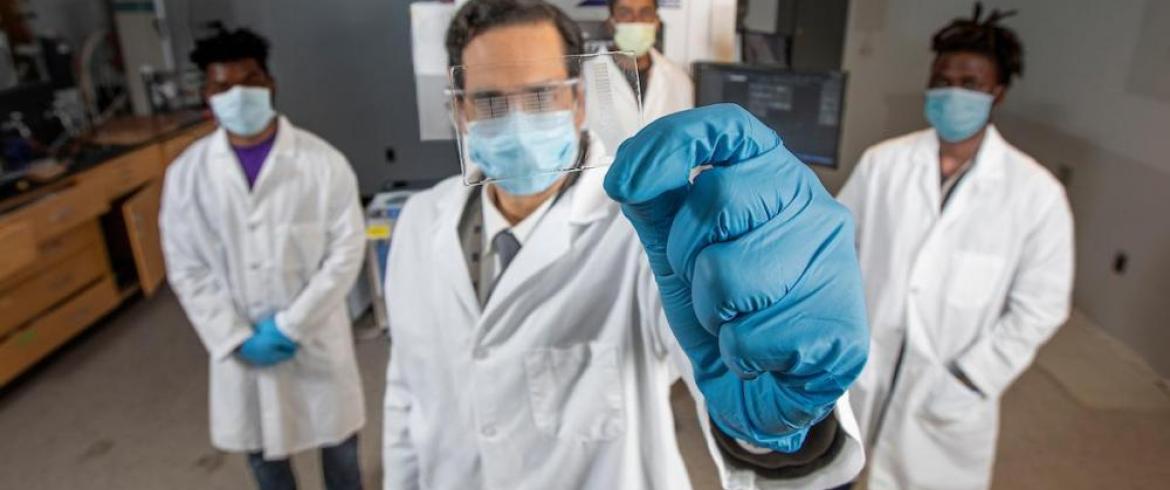
A FAMU-FSU College of Engineering researcher, collaborating with a colleague from Howard University, is investigating bacteria-related dynamics in one of two new projects supported by the National Science Foundation (NSF).
The NSF has awarded over $1 million for two research grants for bacteria related investigations that have the potential to impact societal health by supporting new diagnosis and treatment methods for diseases. One award is through Florida A&M University (FAMU) and the other through Howard University, both historically Black colleges and universities (HBCUs) in a multi-institutional partnership with the FAMU-FSU College of Engineering and the National High Magnetic Field Laboratory.
Jamel Ali, a Howard alumnus, is an assistant professor in chemical and biomedical engineering at the FAMU-FSU College of Engineering and is working with Patrick Ymele-Leki, interim-chair and associate professor in chemical engineering at Howard University. The research project aims to determine the role fluid flow has on the development and evolution of bacterial communities.
“Antimicrobial-resistant (AMR) strains of bacteria are increasing and if we want to develop new antibiotics and diagnostic tools to effectively identify and control their spread, we need to better understand what physical forces drive their drug resistance,” Ali said.
In the first investigation, Ali and Ymele-Leki will look at how various forms of fluid flow impact the process by which bacteria attach to each other to form complex communities. Findings could lead to new methods to control biofilm formation.
Biofilms are aggregates of bacteria that can attach themselves to surfaces. Examples include the dental plaque that forms on teeth or the slimy substance that builds up in the lungs of cystic fibrosis patients. In the medical field, biofilms play an important role in the development of antibiotic-resistant microorganisms that can cause severe infection.
Biofilms typically form in wet environments; however, little is known about how initial single and multi-cell interactions and fluid flow influences their growth and structure. The researchers hope the outcome of their work will provide a better understanding of how they develop and will lead to new diagnosis and treatment methods for problems caused by biofilms.
In the second NSF funded project, Ali will develop novel biological sensors using bacteria’s flagella, which are long, hairy external structures that help the organisms move. He hopes to create nanoscale sensors capable of detecting very small changes in biological environments. By identifying the changes in local cellular regions within human cells, Ali hopes treatment options will be better identified.
“In both projects, for the first time we will be using a set of specialized tools at both institutions that allow us, in real-time, to look not only at bacteria but also at their subcellular components and how they interact with their surroundings,” Ali said.
